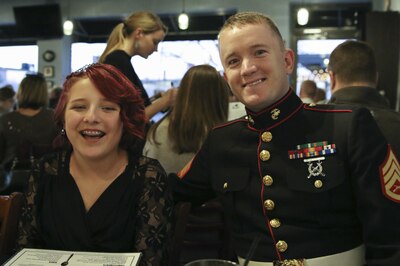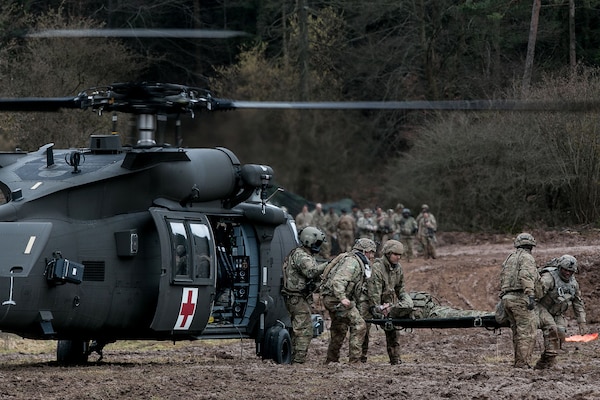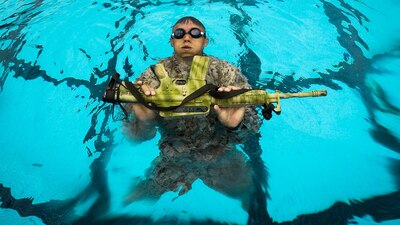By Marine Corps Sgt. Mandaline Hatch, 6th Marine Corps
District
MURFREESBORO, Tenn., Jan. 31, 2018 — A father-daughter dance can be a nightmare for a
girl without a father. When Raven Campbell’s Girl Scout troop announced they
would be hosting a father-daughter dance at St. Mark’s United Methodist Church
here Jan. 20, she was worried she’d have no one to take her.
Then Marine Corps Staff Sgt. Brian D. Raney stepped in.
Elaine Harding, the Girl Scouts Service Unit Manager, told
the Girl Scouts about the father-daughter dance, but to Campbell’s dismay, she
did not have a father to go with. Elaine explained that it didn’t have to be a
father.
“I asked her, ‘If you could go with anybody that you wanted
to, who would you like to go with?’ And she said, ‘A Marine!’” Harding said.
Campbell has had her share of trials the past couple of years.
A year ago, her oldest brother was killed in an automobile accident and her
grandmother passed away shortly after. This year, her mother was diagnosed with
cancer and is currently going through treatment. Despite everything she has
been through, Campbell is determined to become a Marine.
“She wants so badly to be a Marine,” Harding said of
Campbell.
Once on a Girl Scout hiking trip, Campbell filled her
backpack with heavy books to help demonstrate her resolve. “I’ve got to make my
back strong so I can carry the gear that a Marine carries,” Campbell told
Harding.
Help From Community
Harding reached out to the community to see if she could
find a Marine to take Campbell to the dance, and Raney, the station commander
for Recruiting Substation Murfreesboro, stepped in.
“Jason Gulley [with United Real Estate Middle Tennessee] got
in touch with me and gave me the rundown of what they were trying to do for
Raven,” Raney said. “I thought it was really great and I was really excited and
looking forward to [the dance].”
Raney, a recruiter stationed with Recruiting Station
Nashville, 6th Marine Corps District, wasn’t the only one eager to help. The
entire Murfreesboro community came together to make Campbell’s dreams come
true.
“That’s what I do as a recruiter,” Raney said, “I try to
help people. If we can positively impact one person, then we're changing the
world.”
Campbell only knew she was getting her hair and makeup done,
all taken care of by a local salon. Her mother told her there would be other
surprises along the way.
“I saw the limo and then I saw him get out of the car and I
was like ‘No way!’” Campbell said.
They then rode in a limo, provided by a local
philanthropist, to a dinner donated by a restaurant in the local area.
Upon arriving to the dance, the pair had their photos taken
by a local photography studio.
So many people offered to help Campbell that some offers had
to be turned away.
After a night filled with dancing and many Girl Scout
cookies, she said her favorite part was meeting Raney.
“I’m very appreciative to anybody that had anything to do
with this,” Harding said “You have made a little girl very happy.”










